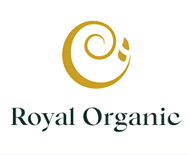FAQs
If you have any questions about our produce and/or practices, please feel free to contact us.
Organic farming is a method of agriculture that emphasises the use of natural processes and organic materials to produce crops and livestock. It avoids the use of synthetic fertilisers, pesticides, and genetically modified organisms.
Organic farming has numerous benefits, including improving soil health, reducing environmental pollution, promoting biodiversity, and producing healthier and tastier food. Additionally, organic farming often supports local communities and economies.
Conventional farming often relies on synthetic chemicals, genetically modified seeds, and intensive tillage practices, while organic farming prohibits these methods and instead uses natural inputs like compost, cover crops, and minimal tillage.
Organic farming practices, such as reducing tillage and using cover crops, can improve soil health and reduce soil erosion. Additionally, avoiding synthetic pesticides and fertilisers helps to protect water and air quality.
Organic food can often be more expensive than conventional food due to the increased costs of production, such as using organic inputs and manual labour. However, many people believe that the benefits of organic food justify the cost.
One way to support organic farming is by choosing to purchase organic products when shopping. You can also support local farmers by buying directly from them. Additionally, spreading awareness about the benefits of organic farming can help to increase demand for organic products.
No. The term ‘free-range’ is legally defined for two foods- eggs and poultry meat and can only be used where these foods meet the requirements in the relevant legislation. Organic production puts a high value on animal welfare and environmental protection, so it is implicitly understood without saying it, that the animals in organic farming systems are free-range. Foods cannot be labelled ‘free-range organic’. They must be either one or the other. https://www.fsai.ie/faq/free_range.html
If you are marketing your goods as organic, this is a protected term. You may produce your own food using organic farming practices but labelling food as organic can only legally be permitted once organic status has been granted to the producing farm by one of the official inspecting certification bodies designated by the Department of Agriculture, Food and the Marine. https://www.fsai.ie/faq/organic_food.html
It is either one or the other and we aim to go as environmentally protective and mindful in all our packaging as is possible. Some food-grade plastics are unavoidably single-use at the moment because an alternative is currently unavailable. But this is something we are actively researching and testing alternatives in the process.
We are planning on establishing a physical shop/cafe by Spring 2024.
We are currently investigating the opportunity for visitors to experience our farm. Join our mailing list to be kept up to date on any future developments.
